BAAI CONFERENCE
The BAAI Conference is an annual event and is regarded as the largest and most professionally comprehensive conference in the field of artificial intelligence in China. The first conference was held in October 2019, and it has since been successfully held for five consecutive years. With a focus on internationalism, authority, and professionalism, the conference invites global experts to deliver speeches and engage in dialogues on the forefront and hot issues of artificial intelligence development. To date, the conference has featured eleven Turing Award winners and attracted over 200 top experts each year. With more than 500,000 viewers from over 30 countries and regions in attendance, the conference serves as a platform for sharing research results, learning cutting-edge knowledge, exchanging practical experience, and establishing collaborative relationships.
General Chairs
Michael I. Jordan
Academic Advisory Committee Member of BAAI, Professor at University of California, BerkeleyMichael I.Jordan is currently the Academic Advisory Committee Member of Beijing Academy of Artificial Intelligence, a Professor at the University of California, Berkeley, and a Fellow of the National Academy of Sciences, the National Academy of Engineering, and the American Academy of Arts and Sciences. His significant contributions include elucidating the connection between machine learning and statistics, and advocating for the importance of Bayesian networks in the field of machine learning. He is also renowned for his work on formalizing variational inference methods and popularizing the expectation-maximization algorithm in machine learning. In 2016, he was named the most influential scholar in the field of computer science by Semantic Scholar. He was awarded the IEEE John von Neumann Medal in 2020, and received the inaugural World Laureates Association Prizee in Computer Science or Mathematics in 2022.Zhang Yaqin
Academician of the Chinese Academy of Engineering, Dean of the Institute for AI Industry Research (AIR) at Tsinghua UniversityZhang Yaqin is the Academic Advisory Committee Member of Beijing Academy of Artificial Intelligence, a Chair Professor of Intelligent Science and the Dean of Institute for AI Industry Research at Tsinghua University, a Member of Chinese Academy of Engineering. Dr. Zhang Yaqin has previously held positions as Chief Scientist at Microsoft Research Asia, Corporate Vice President at Microsoft Global, Chairman of Microsoft China, and President of Baidu. His primary research focus lies in the fields of digital video and artificial intelligence, where he holds over 60 US patents, has published over 500 academic papers, and authored 11 books. Several image and video compression and transmission technologies he invented have been adopted as international standards. Dr. Zhang was awarded the IEEE Fellow at the age of 31 as the youngest scientist in history to receive this honor. In 2004, he received the IEEE Technical Achievement Award.Huang Tiejun
Chairman of BAAI, Professor at the School of Computer Science, Peking UniversityHuang Tiejun is the Chairman of Beijing Academy of Artificial Intelligence, a Professor of the School of Computer Science of Peking University, and the Director of the National Key Laboratory of Multimedia Information Processing. His main research interests are in visual information processing and brain-like intelligence. He invented the principle of Spiking Continuous Photography and ultra-high-speed visual sensor chips, camera, and system. He was awarded the Second Prize of the National Technology Invention Award in 2017 for efficient visual feature analysis and compression key technologies, the Second Prize of the National Science and Technology Progress Award in 2012 for the development and industrial application of national video coding standards, the Outstanding Contribution Award for Chinese Standard Innovation in 2022, and the Outstanding Contribution Award for the Wu Wenjun Artificial Intelligence Science and Technology Award in 2022. He is a National Distinguished Young Scholar, Changjiang Scholar, and Fellow of the CAAI (Chinese Association for Artificial Intelligence), CCF (China Computer Federation), CSIG (China Society of Image and Graphics) and CIE (Chinese Institute of Electronics).
Program Chairs
Wen Jirong
Chief Scientist of BAAI, Executive Dean of Gaoling School of Artificial IntelligenceWen Jirong is the Chief Scientist of Beijing Academy of Artificial Intelligence, the Executive Dean of Gaoling School of Artificial Intelligence, and the Dean of School of Information at Renmin University of China, formerly a Senior Researcher and Director of Web Search and Mining Group at Microsoft Research Asia (MSRA). Dr. Wen has been working in the fields of big data and AI areas for many years, with recent focus on the study and application of large models. He has published over 300 papers at top international journals and conferences, with a total citation count exceeding 28,000. Dr. Wen is Executive Director of the China Computer Federation, Program Committee Chair of SIGIR 2020, Area Chair of WWW 2021, and the Associate Editor of ACM TOIS and IEEE TKDE.Yan Shuicheng
BAAI scholar, Managing director of Kunlun 2050 ResearchYan Shuicheng, Zhishan Scholar, Dean of Kunlun Wanwei 2050 Global Research Institute, Co-CEO of Skywork AI, former Chief Scientist of Sea Group. Professor Yan Shuicheng is a Fellow of the Singapore Academy of Engineering, AAAI, ACM, IEEE and IAPR. His research areas include computer vision, machine learning and multimedia analysis. He has published more than 600 papers in top international journals and conferences, with an H-index over 130, and has been selected as one of the world's highly cited researchers for eight consecutive years. Professor Yan's team has won or been honored more than ten times in the two core competitions in the field of computer vision, Pascal VOC and ImageNet (ILSVRC).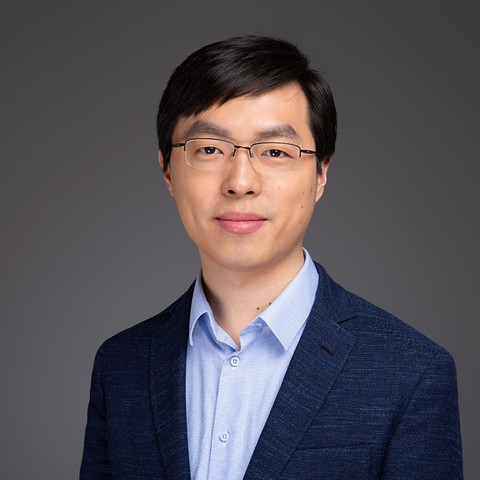
Wang Zhongyuan
President of Beijing Academy of Artificial IntelligenceWang Zhongyuan is the President of Beijing Academy of Artificial Intelligence. Dr. Wang Zhongyuan has long been engaged in the research and practice of cutting-edge AI technologies, and has held important technical and management positions in well-known companies and research institutions, such as Kuaishou, Meituan, Facebook, and Microsoft Research Asia. Dr. Wang possesses great forsight, solid research capabilities, fruitful technology implementation, practical product and business applications, and rich team management experience.
Track Chairs

Stuart Russel
Professor at the University of California, BerkeleyACM Fellow, AAAI Fellow, AAAS Fellow. He was honored with the IJCAI Computers and Thought Award in 1995. His book 'Artificial Intelligence: A Modern Approach', co-authored with Google Research Director Peter Norvig, is an authoritative textbook on artificial intelligence. In 2020, his new book 'Human Compatible: Artificial Intelligence and The Problem of Control' was published in China
Zhang Hongjiang
Director of the Academic Advisory Board at BAAI Research InstituteDirector of the Academic Advisory Board at BAAI Research Institute, Foreign Member of the National Academy of Engineering, USA. Former Chief Technology Officer of Microsoft Asia Pacific R&D Group, he has served as CEO of Kingsoft, CTO of Microsoft Asia Pacific R&D Group, Dean of Microsoft Asia Engineering Academy, Deputy Dean of Microsoft Asia Research Institute, and was one of the first 'Distinguished Scientists' at Microsoft. He is a Fellow of both the Association for Computing Machinery (ACM) and the Institute of Electrical and Electronics Engineers (IEEE), and has received the 2010 IEEE Computer Society Technical Achievement Award and the 2012 ACM Multimedia Outstanding Technical Achievement Award, and was named the 2008 Outstanding Asian American Engineer of the Year. He has published nearly four hundred academic papers and authored several academic monographs. Since 2018, he has been ranked as the top scientist in mainland China in the world's top computer scientist rankings published by Guide2Research.
Chen Jianfei
Associate Professor of Tsinghua UniversityJianfei Chen earned his B.E. and Ph.D. degree in Computer Science from Tsinghua University in 2014 and 2019, respectively. During his studies, he worked with Jun Zhu at the TSAIL group. His research interests include efficient machine learning, with a focus on quantized neural networks, stochastic optimization algorithms, and probabilistic inference algorithms. Junfei has also developed several scalable training systems for topic models in the past. In 2019, Jianfei Chen was awarded the CCF Outstanding Dissertation Award for his exceptional work. He had also won the gold medal of National Olympiad in Informatics in China in 2009. In 2018, Jianfei Chen co-founded RealAI, which is a notable achievement in his career.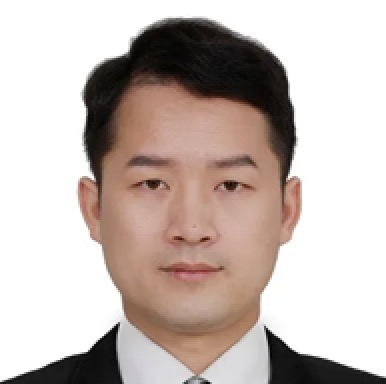
Cheng Mingming
Professor of Nankai UniversityMingming Cheng, graduated with a Ph.D. from Tsinghua University in 2012. He then conducted research in computer vision at the University of Oxford in the UK and returned to China in 2014 to teach. He is now a professor at Nankai University, affiliated with the Department of Computer Science and Information Security at the School of Computer Science. With many years of study experience at well-known universities at home and abroad and rich research experience, his main research directions include computer graphics, computer vision, and image processing. He has published more than 30 papers in CCF-A international conferences and journals such as IEEE PAMI and ACM TOG. His research papers have been cited more than 8,000 times, with the highest single citation exceeding 2,000 times. His research results have been applied in flagship products of companies such as Huawei and Tencent. Among them, the salient object detection technology was used as a highlight feature in flagship phones such as Huawei Mate 10 and was displayed at the product launch. His research work has been reported by authoritative international media such as the BBC in the UK, Der Spiegel in Germany, and the Huffington Post in the US. In addition, he has served as a reviewer for many top conferences (including: ACM SIGGRAPH 2013; ACM SIGGRAPH Asia 2012, 2011; Eurographic 2012; Pacific Graphics 2011, etc.) and famous journals (including: IEEE TPAMI, TIP, TMM, TVCG, TCSVT, CYB, SPL, ISTSP: Elsevier PRL, IMAVIS, CAG, Image Communication JVCI, NEUCOM, SIGPRO; Wiley CGF, Springer TVC, NEPL, SCIS, ZUSC, JCST, SCIS; PLOS ONE; IET CVI, etc.) in the field of computer science. He is currently collaborating with key research groups such as the Graphics Research Group at Tsinghua University, the Computer Vision Research Group at the University of Oxford, the VGG Research Group at the University of Oxford, and the I3D Group at Microsoft Research Cambridge.
Du Junping
Director of LF AI & data FoundationJunping Du, Director of the LF AI & DATA Foundation. He is a member of the Apache Foundation, a core PMC and Committer of projects like Apache Hadoop. He has held executive positions in Fortune 500 companies and served as the head of R&D in renowned innovation companies in Silicon Valley. He has long-term experience and influence in the fields of cloud computing, big data, and open-source AI.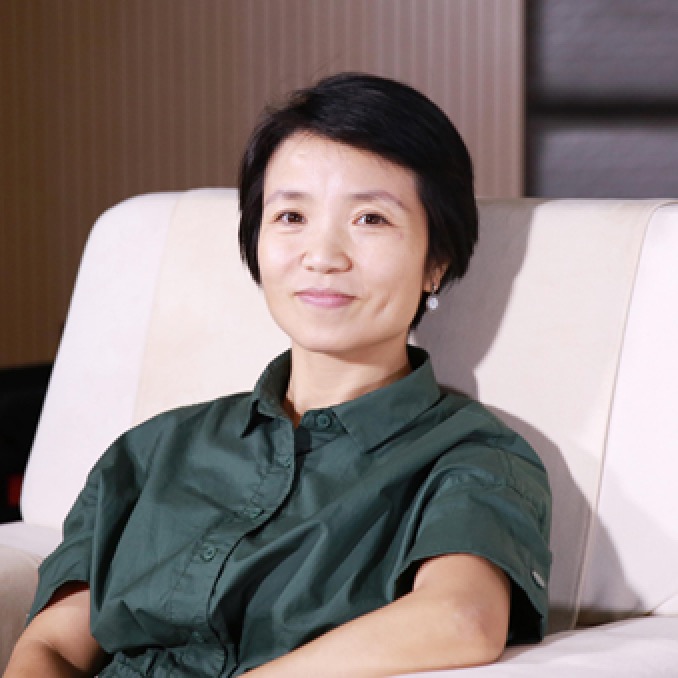
Feng Junlan
Chief Scientist of China Mobile Communications CorporationJunlan Feng, an IEEE Fellow, currently serves as the Chief Scientist of China Mobile Group, General Manager of the AI and Intelligent Operations Center of China Mobile Research Institute, Vice Chairman of the AI Working Committee of the China Internet Association, Vice Chairman of the China AI Industry Development Alliance, Chairman of the Board of Directors of the International Linux Network Foundation, and Vice Chairman of the AI Technology and Application Committee of the China Communications Society. Dr. Feng's main research areas include speech recognition, language understanding, and data mining. She has published over a hundred academic papers, holds more than 60 patents in China and abroad, and has written a book. She joined China Mobile Research Institute in 2013, established and led the company's AI team - the "Jiutian" team, making significant technological breakthroughs in network intelligence, AI platforms, speech, and human-computer dialogue. She bravely undertakes the task of breakthroughs in original AI technology, innovatively proposing "systematic AI" to solve the fundamental contradiction between the increasingly ubiquitous demand for intelligence and the high cost and low efficiency of AI implementation. She has led her team to undertake 16 national key projects and demonstration projects for scientific and technological innovation.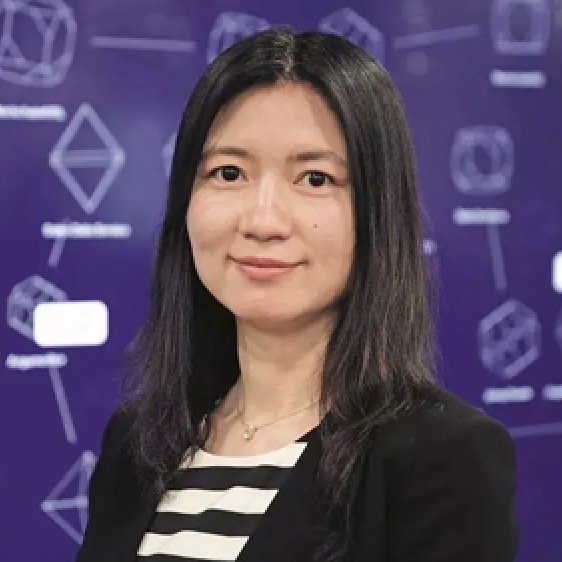
Lin Yonghua
Vice President and Chief Engineer of BAAIYonghua Lin currently serves as the Deputy Director and Chief Engineer of BAAI, in charge of important directions such as the Large Model Research Center, Artificial Intelligence System and Basic Software Research, and Industrial Ecological Cooperation. She is a member of the leadership team of IEEE Women Engineers in the Asia-Pacific region and the founder of the Beijing branch of the IEEE Women Engineers Association. She was the director of IBM China Research Institute and a global distinguished engineer at IBM, leading the innovation of global artificial intelligence systems within IBM. She has been engaged in nearly 20 years of research in system architecture, cloud computing, AI systems, and computer vision. She has more than 50 global patents and has won the ACM/IEEE Best Paper Award multiple times. She was rated as one of the 50 leading women in technology in China by Forbes in 2019.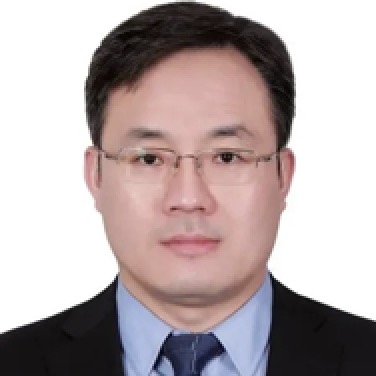
Liu Fawang
工业和信息化部装备工业发展中心副主任计算机应用专业博士,正高级工程师,工信部装备工业发展中心副主任,目前兼任工信部车辆产品技术委员会秘书长、工信部智能网联汽车推进组(ICV-2035)秘书长等。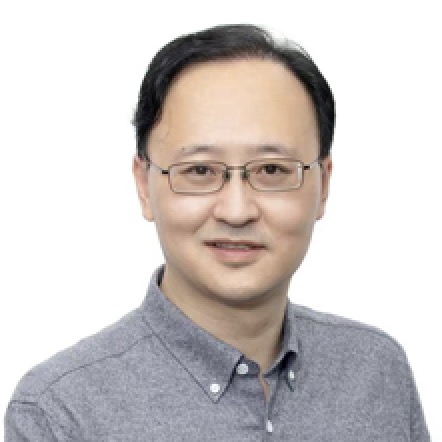
Liu Jia
Professor of Tsinghua University, Chief Scientist of BAAIGraduated from the Department of Brain and Cognitive Sciences at the Massachusetts Institute of Technology (MIT), with a Ph.D. in Cognitive Neuroscience. The main research field is the cognitive neural basis of artificial intelligence (AI of Brain & Cognition, ABC), and visual intelligence. He has received national talent project funding such as the National Outstanding Youth Fund, the Ministry of Education Changjiang Scholar Distinguished Professor, the National "Ten Thousand People Plan" Science and Technology Innovation Leader, and the Ministry of Education Natural Science First Prize, etc.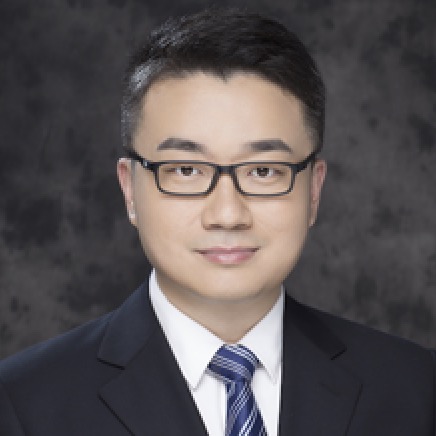
Liu Zhiyuan
Associate Professor of Tsinghua University, Visiting Chief Scientist of BAAIZhiyuan Liu, his main research directions are natural language processing, knowledge graphs, and social computing. He received his Ph.D. from Tsinghua University in 2011 and has published over 100 papers in renowned international journals and conferences in the field of artificial intelligence such as ACL, EMNLP, IJCAI, AAAI, with more than 30,000 citations according to Google Scholar. He has won the First Prize of Natural Science from the Ministry of Education (second author), the First Prize of Qian Weichang Chinese Information Processing Science and Technology Award from the Chinese Information Processing Society (second author), and the Hanwang Young Innovation Award from the Chinese Information Processing Society. He has been selected as a National Young Talent, a Young Scientist at BAAI, a Highly Cited Scholar in China by Elsevier in 2020, one of the 35 Under 35 Innovators in China by MIT Technology Review, and a Young Talent Support Project by the China Association for Science and Technology. He serves as the Director of the Youth Work Committee of the Chinese Information Processing Society, the Secretary-General of the Social Media Processing Committee of the Chinese Information Processing Society, the Deputy Editor-in-Chief of the journal AI Open, and the Area Chair of ACL, EMNLP, WWW, CIKM, COLING.
Lu Zongqing
Associate Professor at Peking University, BAAI ScholarZongqing Lu is currently a long-term associate professor at the School of Computer Science, Peking University, a national-level young talent, and a BAAI Scholar. His main research areas are reinforcement learning, multimodal large models, and general intelligent agents. He serves as the area chair for ICML, NeurIPS, ICLR.
Ma Weiying
Huiyan Chair Professor, Chief Scientist of Institute for AI Industry Research (AIR), Tsinghua UniversityDr. Wei-Ying Ma is currently the Huiyan Distinguished Professor and Chief Scientist at the Institute for AI Industry Research, Tsinghua University. His research includes several core areas of artificial intelligence (search and recommendation, big data mining, machine learning, natural language understanding and generation, computer vision) as well as interdisciplinary research and applications of AI in life sciences, biopharmaceuticals, genetic engineering, and personalized precision medicine. He previously served as the Vice President and Director of the AI Lab at ByteDance, and the former Executive Deputy Director of Microsoft Research Asia. Dr. Ma has published over 300 papers in world-class conferences and journals, and holds more than 160 technology patents. He is a Fellow of the Institute of Electrical and Electronics Engineers (IEEE Fellow) and has served as the co-chair of the International Conference on Information Retrieval (SIGIR 2011) and the co-chair of the program committee of the International World Wide Web Conference (WWW 2008).
Meng Wei
Chairman of LF Al & Data FoundationMeng Wei, Director of Open Source Strategy at ZTE Corporation. Since 2016, he has been leading the pre-research work in the field of artificial intelligence at ZTE. He is dedicated to research in AI and 5G, and was elected as the chairman of the ITU-T ML5G WG3 (Machine Learning for 5G Network Architecture Group) of the United Nations International Telecommunication Union in 2018. At the same time, he was elected as the deputy head of the overall group of the China Artificial Intelligence Industry Development Alliance and a board member of the Linux AI & Data Foundation. Mr. Meng has served as the PTL of the Linux Foundation's ODL project and the mentor of the Adlik project, and has initiated and published several international standards in the IETF and ITU-T, involving artificial intelligence and network function virtualization. At the same time, he has obtained more than 30 Chinese and international patent authorizations as the first author.
Song Ruihua
Associate Professor of Renmin UniversityDr. Ruihua SONG is a tenured Associate Professor of Gaoling School of Artificial Intelligence at Renmin University of China. She has been Lead Researcher of Microsoft Research Asia and Chief Scientist of Microsoft XiaoIce. On May, 2017, the first AI-authored poem collection was published. The book title is “The Sunshine Lost Windows”. She contributes the generation algorithm behind. As a Technical Lead, she contributes to WenLan image-text and video-text multimodal pretraining models. She published more than 100 papers and hold 30 patents. She serves SIGIR, ACL, KDD, WWW, EMNLP, CIKM, etc. as Track Chairs, Area Chair, Senior PC, or PC. Her recent research interests include multi-modal understanding, creation and interaction.
Shen Chunhua
Professor of Zhejiang University, Visiting Chief Scientist of BAAIChunhua Shen is a Qiu Shi Distinguished Professor at Zhejiang University, Deputy Director of the National Key Laboratory of Computer Aided Design and Graphics Systems, and a recipient of the Ministry of Education's Changjiang Scholars Program. Shen received his bachelor's and master's degrees from Nanjing University and earned his Ph.D. in computer vision from the University of Adelaide in 2005. From 2006 to 2011, he worked as a researcher at the Australian National University and National ICT Australia. In 2011, he returned to the University of Adelaide as a faculty member and was selected for the Australian Research Council Future Fellowship program the same year. In 2014, he was promoted to full professor in the Department of Computer Science at the University of Adelaide. At the end of 2021, he returned to China to join Zhejiang University full-time. His Google Scholar citations reach 71,800, with an H-index of 125.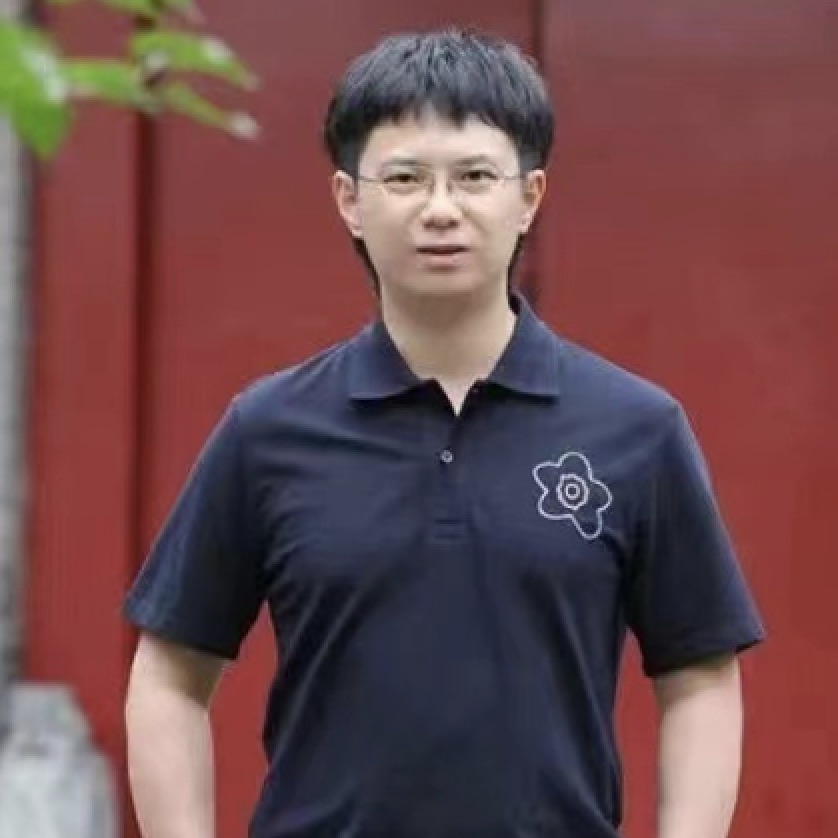
Wang He
Assistant Professor of Peking University, Visiting Chief Scientist of BAAIDr. He Wang is an Assistant Professor and Ph.D. supervisor at the Center on Frontiers of Computing Studies (CFCS), Peking University. He founded and leads the Embodied Perception and Interaction Lab at Peking University (Homepage: https://hughw19.github.io). The lab focuses on 3D visual perception and robotics, with a particular emphasis on the perception and interaction of embodied robots in complex 3D environments. The research goal is to develop highly generalizable robot vision and control systems in an augmentable manner. The research outcomes cover object grasping, functional manipulation, dexterous operation, and object-seeking navigation, with over 40 papers published in CVPR/ICCV/ECCV/TRO/RAL/ICRA/IROS/ICLR/NeurIPS/AAAI. He has received the World Artificial Intelligence Conference Outstanding Youth Paper Award, ICRA2023 Outstanding Manipulation Paper finalist, Eurographics 2019 Best Paper Nomination, and the ICLR 2021 Generalizable Robot Object Manipulation Challenge ManiSkill Unannotated Track Champion. He served as an Area Chair for CVPR2022 and WACV2022, Associate Editor for Image and Vision Computing, and reviewer and program committee member for many top conferences. Before joining Peking University, he received his Ph.D. from Stanford University in 2021, under the supervision of Professor Leonidas. J Guibas, a member of the American Academy of Sciences, and his Bachelor's degree from Tsinghua University in 2014.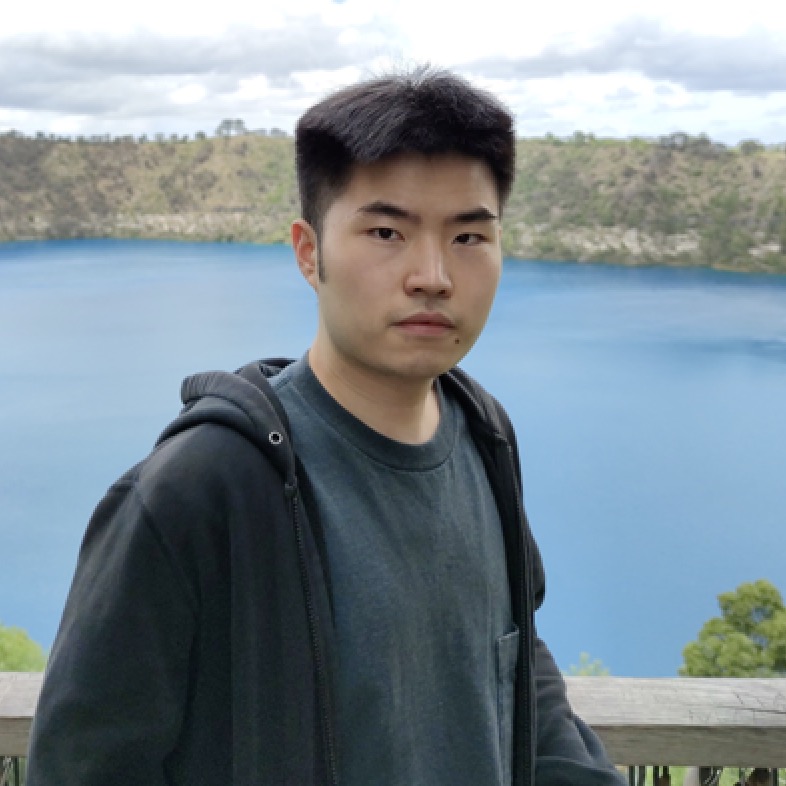
Wang Xinlong
Researcher of BAAIResearcher at the Vision Model Research Center of BAAIResearch Institute, with a PhD from the University of Adelaide, Australia. His research fields are computer vision and basic models, and his recent research work includes SOLO, SOLOv2, DenseCL, EVA, Painter, and SegGPT, etc. Awards include the Google PhD Fellowship, National Excellent Self-financed Study Abroad Scholarship, and the University of Adelaide Doctoral Research Medal, etc.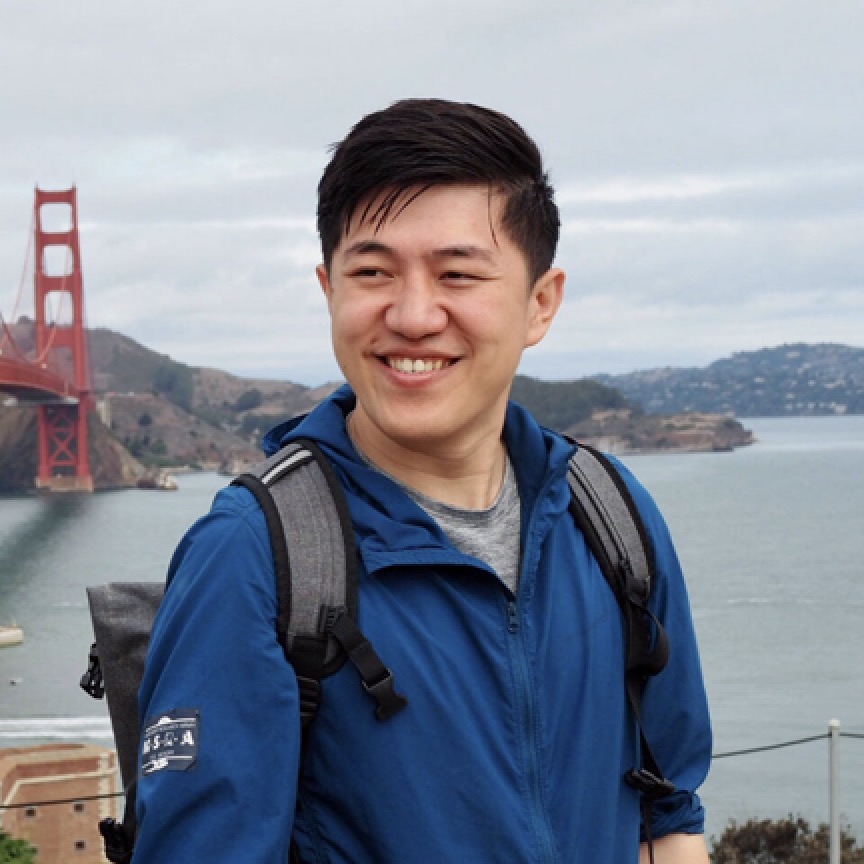
Ye Qiwei
Head of the Health Computing Research Center at Peking University's Institute for Artificial Intelligence (Zhiyuan Research InstituteQiwei Ye, formerly a Principal Researcher at Microsoft Research Asia, is an AI for Science young scholar. His research interests include (deep) reinforcement learning, decision tree models, generative models, and their applications. In 2016, he developed LightGBM, which surpassed other frameworks of its time in both accuracy and speed, becoming one of the most popular decision tree algorithms in the industry. In 2018, he developed Suphx, currently the strongest Mahjong AI model in human history, which achieved the rank of ten-dan on the "Tenhou" platform, significantly surpassing top human players. In 2023, his team's OpenComplex protein complex structure prediction model won the annual championship at CAMEO.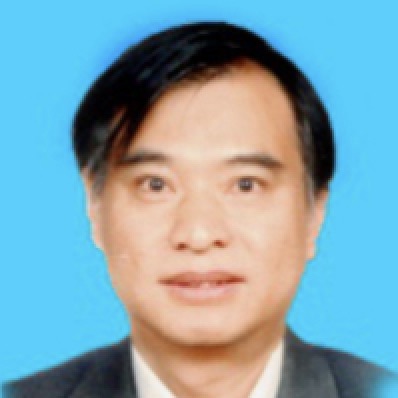
Zhang Henggui
Chief Scientist of BAAI Life Simulation Research CenterChief Scientist at the BAAI Life Simulation Center, National Distinguished Expert. Chair Professor at the School of Physics and Astronomy, University of Manchester. Elected in 2019 as a Fellow of the Royal Society of Arts and a Fellow of the Royal Society of Biology in the UK, receiving the honorary titles of FRSA and FRSB. He has achieved a series of influential and original important results in the research of computational cardiac dynamics and virtual physiological organs. He has published more than 400 journal and conference articles, including more than 200 articles in peer-reviewed international authoritative journals (SCI, such as Circulation (IF>22), Circ Res (IF>13), Nature Communication, etc.). His work has aroused widespread public interest and has been reported by multiple countries and media (such as the BBC). Citation (paper citation): >13000 times, H-index: 58. He has presided over more than 20 projects including the UK BBSRC, EPSRC, BHF, Wellcome Trust fund projects, the EU's 7th Framework Programme, China's Natural Fund projects, pharmaceutical companies and investment company projects. He has been invited to give keynote speeches and serve as the conference chair at multiple prestigious international conferences, and has successfully organized multiple international conferences to date."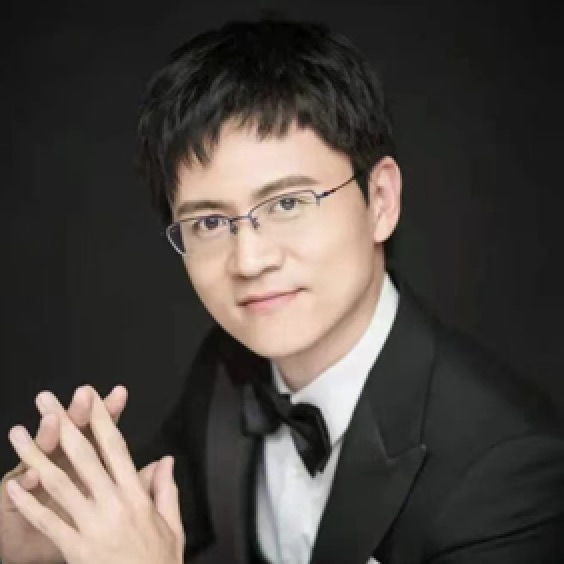
Zhao Xin
Professor of Renmin University,Visiting Chief Scientist of BAAIZhao Xin is a professor at Gaoling School of Artificial Intelligence, Renmin University of China. He obtained the doctoral degree from Peking University in July 2014 and have since worked at Renmin University of China. His research interests include information retrieval and natural language processing, with a total of more than 200 papers published and more than 18000 citations from Google Scholar. He has led the development of Yulan-series Large Language Model and the writing of a review paper on large language models, entitled “A Survey of Large Language Models” (preprint article) and a Chinese textbook on “Large Language Models”. He has won the 2020 Wu Wenjun Artificial Intelligence Excellent Youth Award, ECIR 2021 Time Testing Award, and CCF-IEEE CS Young Scientist Award.
Li Chongxuan
Associate Professor at Renmin University of ChinaAssociate Professor and Ph.D. supervisor at Gaoling School of Artificial Intelligence, Renmin University of China. He received his Bachelor's and Ph.D. degrees from Tsinghua University from 2010 to 2019. His main research areas are machine learning and deep generative models, with representative works deployed in large-scale text-to-image model DALL·E 2, Stable Diffusion, and text-to-video model ViDu. He has received awards such as the Outstanding Paper Award at the ICLR International Conference, the Wu Wenjun Outstanding Youth Award, the Wu Wenjun Artificial Intelligence Natural Science First Prize, and the Outstanding Doctoral Dissertation of the China Computer Society. He has been selected for the BoXin Plan and Beijing Science and Technology Nova, and has presided over and participated in many projects of the National Natural Science Foundation and the Ministry of Science and Technology. He serves as the area chair of international conferences such as ICLR and NeurIPS.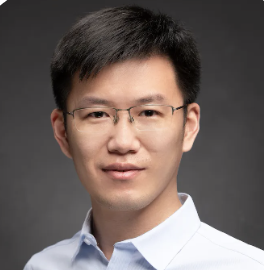
Wang Yequan
Researcher at the BAAIWang Yequan, a researcher at the Beijing Academy of Artificial Intelligence, is the leader of the national 'New Generation Artificial Intelligence National Science and Technology Major Project', the head of the FLM team, and holds a Ph.D. from Tsinghua University. He is a member of the Embodied Intelligence Committee of the Chinese Association for Artificial Intelligence and was named one of the most influential AI scholars in the field of Natural Language Processing by AI 2000 in 2022. In recent years, his main research work has been in large models, with representative achievements including the FLM series models (Tele-FLM, FLM-101B), Mu-Scaling, MSG, and ATAE-LSTM. He has published numerous research results at top international conferences, with over 3,000 citations on Google Scholar. His research achievements, ATAE-LSTM and RNN-Capsule, have been rated as the most influential papers by PAPER DIGEST, and he has been repeatedly listed on the Google Scholar Journal Index."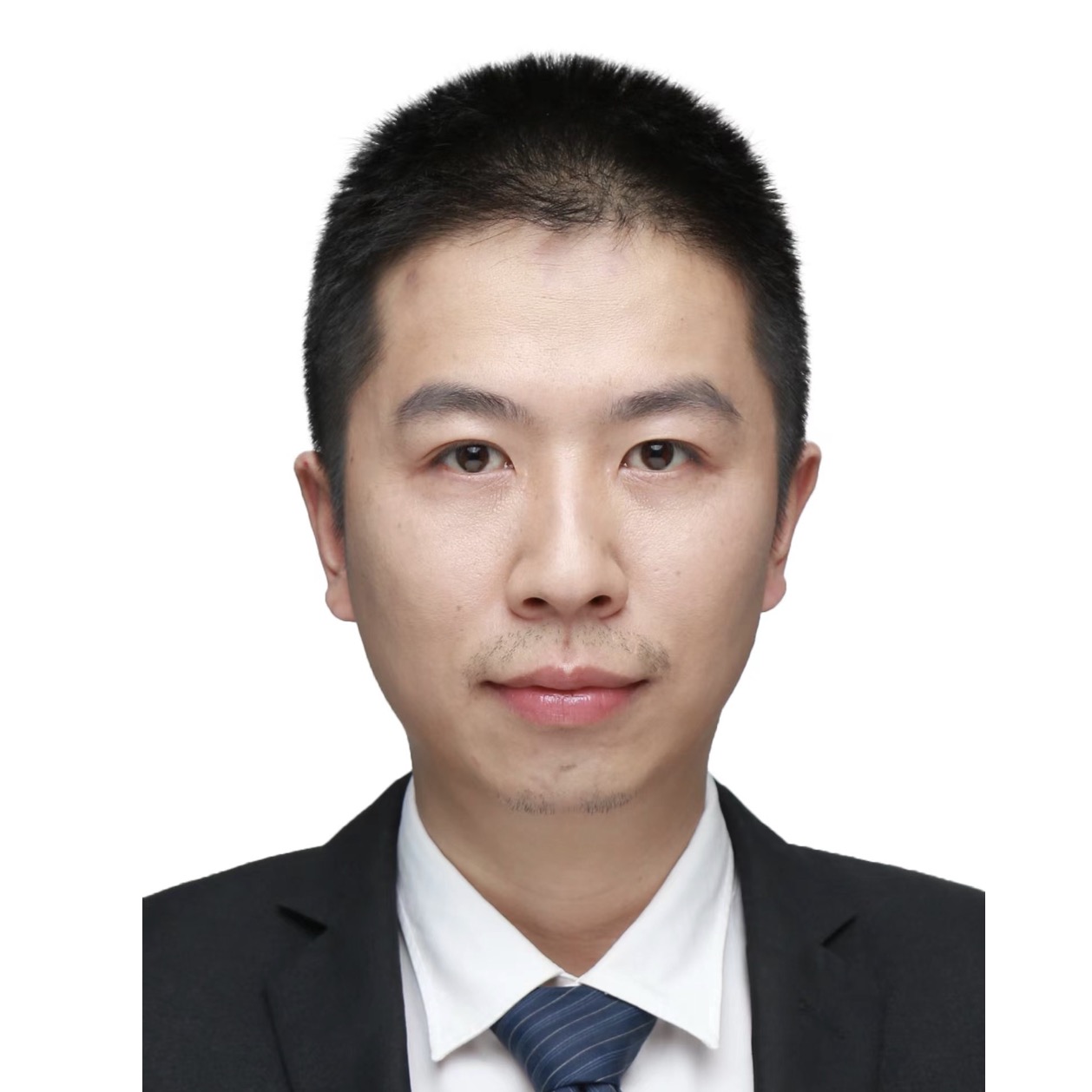
Li Yongxiang
Deputy General Manager of the AI R&D Center at China Telecom Artificial Intelligence Research InstituteLi Yongxiang, Deputy General Manager of the AI R&D Center at China Telecom Artificial Intelligence Research Institute, has built from scratch the AI R&D team at China Telecom, creating comprehensive capabilities in image, voice, semantic, and multimodal core algorithms to support the development of AI business across China Telecom. He has established the ability to independently research and develop large-scale basic models, successively open-sourcing several versions of large semantic models such as 7B/12B/52B, and releasing the first voice model in China that supports 30 dialects spoken freely. The model has passed the dual filing of algorithms and products by the National Internet Information Office. Leading his team, they have won 18 championships and runner-ups in international AI top competitions, published more than ten high-level papers, and as the technical leader, he has led two major scientific and technological breakthrough projects at the departmental level.
